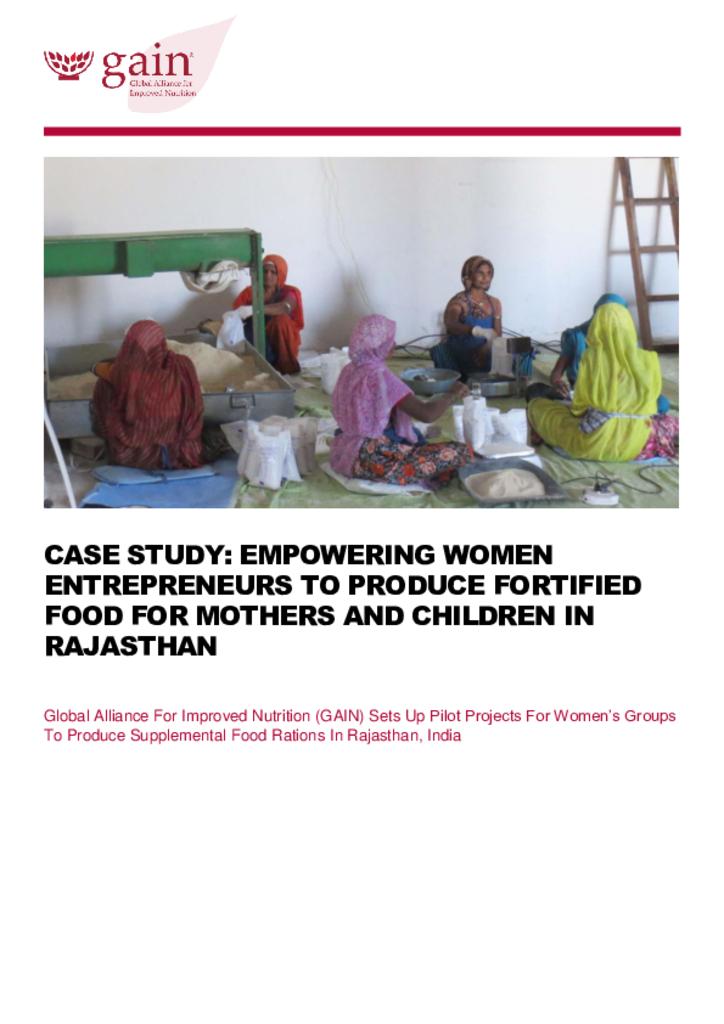In India’s largest state of Rajasthan, a high percentage of children are undernourished and are not consuming the necessary vitamins and minerals they need to thrive. To support the most vulnerable of Indians, the government provides additional supplemental food fortified with vitamins and minerals for free to pregnant/lactating mothers and children under age three.
In 2010, the Global Alliance for Improved Nutrition (GAIN), the United Nations World Food Programme (WFP), and the Government of India launched a model for producing supplemental food, referred to as “take home rations,” which would be distributed through government supported community centres. Their approach centred on developing small-scale production facilities run by a cohort of women entrepreneurs who would be both owners and workers in the factories. The production facilities in Rajasthan would produce a product called Raj Nutrimix: a mix of flours, wheat and sugar fortified with necessary micronutrients and palatable to children. The State Government of Rajasthan, through their social welfare program, would act as both a buyer and distributor of the product, and then provide the product to pregnant and lactating women and to children under age three through community centres.
This case study describes the project outcomes and also highlights the key lessons learned, challenges, and opportunities moving forward.
